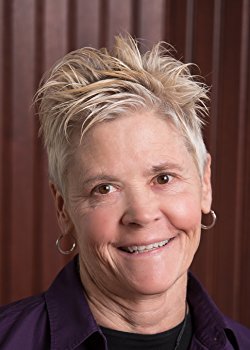For this piece, I’ve had the pleasure of interviewing Amanda Lambert. Amanda lives in Utah where she is a care manager and co-author of the book “Aging with Care: Your Guide to Hiring and Managing Caregivers at Home.” Over the last 25 years, she has worked in mental health, home health and, most recently, care management and consultation. Certified as an Advanced Aging Life Care Specialist through the Aging Life Care Association, Amanda has written multiple papers and given presentation on how to work with older clients. You can find her webpage at mindfulaging.com.
Editor’s note: This interview has been edited for length and clarity.

Credit: amazon.com
Debra Stang: Hello again, Amanda. I know many older people with medical needs want to stay in the home. What are their options?
Amanda Lambert: Hello, Debra. Sometimes friends and family will be able to provide the necessary care for an older adult to be safe in the home. If not, the client will need to have private-duty care. Some long-term care insurance policies cover this, but Medicare and supplemental policies do not. When I work with a family as a care manager, I’m very frank about the costs. I send many of my clients to elder law attorneys to help them protect their assets.
Debra: When the finances are worked out, what do you tell clients to look for in private-duty home care?
Amanda: First of all, determine exactly what care the agency provides. Can they administer medications? Help with bathing? Prepare meals?
Next, ask the agency whether your loved one will receive care from a certified nurses aide – CNA – or a personal care attendant – PCA. Ask the agency what the caregivers can and can’t do. For instance, in some states, CNAs can’t give medications.
Finally, ask who in the agency you should speak to if a problem comes up. Can you call this person for regular progress reports? Will the agency call you if caregivers notice a change in your loved one’s condition?
Debra: What options exist for adults who can no longer remain at home?
Amanda: As a care manager, I deal with this issue on a regular basis. One solution is assisted living. Most assisted living facilities are owned by private corporations. They may appear to be quite luxurious, but a fountain in the lobby doesn’t necessarily mean good care. Talk to the administrator or admissions coordinator about the services provided. Be sure to ask about the costs involved. Some facilities raise their rates as a resident’s needs increase.
Another option is long-term care in a nursing facility. Many people think Medicare will pay for this, but unfortunately it doesn’t. If your loved one has few or no assets, you can help him or her apply for the state’s medical assistance program which will cover the cost of long-term care.

Credit: nia.nih.gov
Debra: How do your clients feel about the prospect of leaving their homes?
Amanda: Most of them don’t like it. They would rather age at home where everything is familiar. But the interesting thing is that when older adults leave their homes, they often do better. Many older adults living at home become socially isolated. At a facility, they make friends. Older adults who have health problems and who live at home alone tend to skip meals or eat junk food. The facility can ensure that your loved one is getting proper nutrition and hydration.
Debra: Are there any topics that I should have touched on but didn’t?
Amanda: I’d like to mention that falls can wreak havoc on an older person’s health. It’s important for your loved one to get some kind of exercise to improve balance and flexibility. As a care manager, I also recommend removing fall hazards like clutter on the floor or area rugs from your loved one’s living space.
Finally – and this concept is difficult for the families I work with – people have the right to make bad decisions. As long as an older adult is not incapacitated by a mental illness or dementia, he or she can choose to live in an unsafe environment or to refuse medical care. I can mediate between older adults and their families, but I can’t force my clients to do anything.
Debra: Amanda, thank you so much for your time and for your insights. I’ve enjoyed talking to you.
Amanda: Thank you, Debra. I’ve enjoyed talking to you, too.
Did you miss the first part of Amanda’s interview? If so, please catch up here.

 How Can a Care Manager Help You?
How Can a Care Manager Help You?


 KAAN Architecten’s New Visitor Center at the Netherlands American Cemetery
KAAN Architecten’s New Visitor Center at the Netherlands American Cemetery
 “Prayer” by Lizzie West
“Prayer” by Lizzie West
 Rutgers Health Study May Improve End-of-Life Care
Rutgers Health Study May Improve End-of-Life Care














